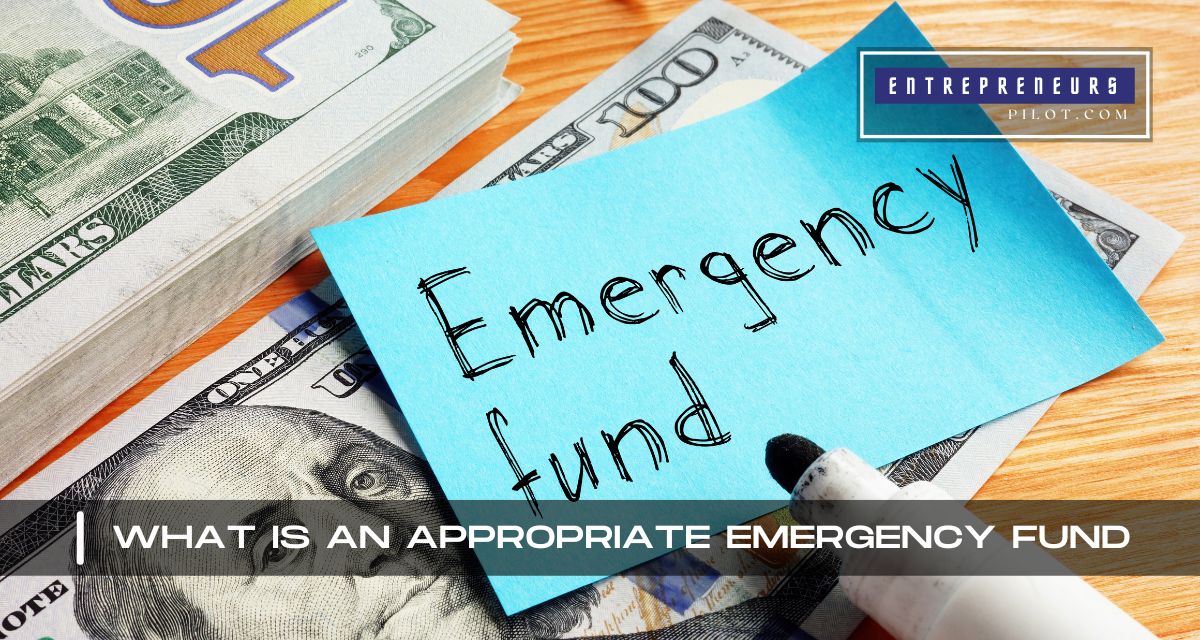Imagine finding yourself in the middle of an unexpected financial crisis, gasping for air amidst overwhelming bills and unforeseen expenses. A large majority have been there, and in those vulnerable moments, one question often arises – “What Is An Appropriate Emergency Fund?” It’s the safety net we all think about, yet so many get it wrong.
Mistakes in this realm are more common than you’d think. Whether it’s the young professional just starting out, eager to dive deep into the world of adulting, or the mid-career family person juggling expenses and future plans, the pitfalls are abundant. Some under-save, thinking that a minor cushion is enough. Others might hoard excessively, missing out on potential investment opportunities.
As you delve into this article, you’ll uncover the 10 common mistakes people often make when pondering over the appropriate size of their emergency fund. By the end, not only will you be equipped with the knowledge to sidestep these pitfalls, but you’ll also feel an undeniable urge to reassess your own financial safety net. Dive in, and let’s explore this together.
Table of Contents
Life’s unexpected twists and turns often come with financial hiccups. Perhaps it’s the leaky roof after a heavy downpour or an unforeseen medical bill that’s given you sleepless nights. Naturally, one thought comes to mind: “What Is An Appropriate Emergency Fund?” Even if you’ve been diligent about saving, figuring out that magic number can be tricky. To help you navigate these murky financial waters, let’s uncover the ten common mistakes people often make when setting up their emergency fund.
1. Not Having an Emergency Fund at All:
Starting on the wrong foot can be detrimental. Believe it or not, many people don’t have any emergency savings. They rely on credit cards or loans when disaster strikes, which often leads to long-term financial woes.
2. Confusing Wants with Needs:
Not every unexpected expense is an emergency. Replacing a torn designer bag isn’t on the same level as fixing a broken-down vehicle. It’s vital to discern between genuine emergencies and mere inconveniences.
- For Expert Financial Insights And Guidance, You Can Visit Our Sister Site – ArabsGeek.com Now!
- Curiosity Piqued? Dive Into the Most Captivating Financial Content by Visiting Our Homepage!
- Unlock Exclusive Business Opportunities! 🚀 Connect with Us Now at our Email: [email protected]!
3. Setting the Bar Too Low:
While something is better than nothing, underestimating your needs can be problematic. A fund that covers only a month’s worth of expenses won’t offer much solace in a prolonged financial or health crisis.
4. Overestimating the Fund Size:
On the flip side, stashing away excessive money in an emergency fund could mean missed investment opportunities. Remember, your emergency fund should be a safety net, not a gold vault.
5. Not Reassessing Periodically:
Your life and financial obligations aren’t static. Whether it’s marriage, kids, or a new home, changes necessitate revisiting your fund calculations. Make it a habit to review your savings strategy annually.
6. Ignoring Liquid Investments:
Your emergency fund should be easily accessible. Avoid tying your savings up in long-term investments or accounts that penalize early withdrawals.
7. Not Factoring in Deductibles:
If you have insurance policies with high deductibles, factor these into your emergency savings. You wouldn’t want an accident to leave you scraping for coins, right?
8. Depending on Others:
Relying on friends or family for financial support can strain relationships. Having your own savings grants you independence and spares loved ones potential stress.
9. Overlooking Inflation:
$1000 today might not be worth the same five years from now. Ensure that your savings grow, at least at par with inflation, to maintain your purchasing power.
10. Not Automating Savings:
One of the best ways to ensure you’re regularly contributing to your emergency fund is to automate transfers. This takes out the human tendency to procrastinate or spend before saving.
Conclusion:
As you walk through the financial journey of life, it’s essential to arm yourself with knowledge. By avoiding these ten pitfalls, you’ll be better prepared for life’s financial storms. Remember, the question isn’t just, “What Is An Appropriate Emergency Fund?” but also how you can best ensure your fund serves its true purpose: providing peace of mind in turbulent times. Make informed decisions, and let your savings be the anchor that keeps you grounded.











